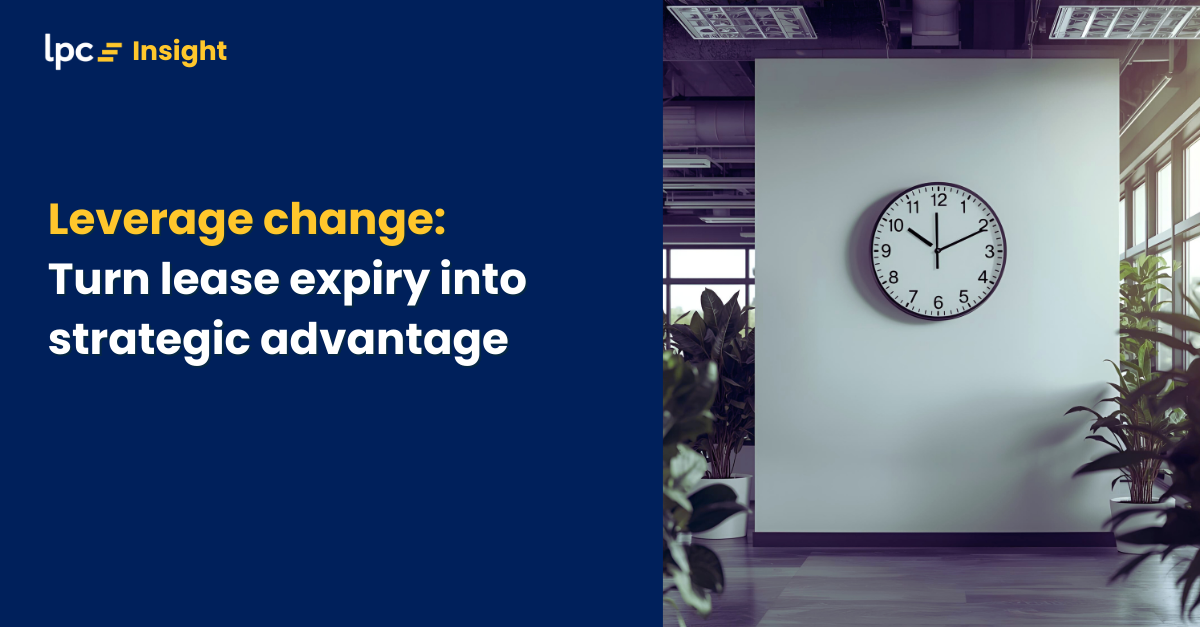Following our recent articles where we answered your top retail tenancy questions and your top office tenancy questions, we have asked our industrial tenancy advisors to answer your top industrial questions
1. How can I negotiate more favourable terms in my industrial lease agreement?
Negotiating favourable terms in your industrial lease starts with thorough research. Understand your area's market rates and conditions, and prepare a clear list of your business requirements. Highlight your strengths to the landlord, such as a solid business history and good credit. Consider working with a tenant representative specialising in industrial properties to leverage their expertise and negotiate on your behalf.
2. What are the key factors influencing industrial lease costs in the current market?
Key factors influencing industrial lease costs include location, building quality, access to transportation infrastructure, and market demand. Market demand is currently higher than supply and having a large impact on both new and renewed leases. Economic conditions, vacancy rates, and the level of available amenities also play significant roles. Stay informed about market trends and recent lease agreements in your area to understand how these factors impact your lease costs. You may wish to consider areas that are further afield due to better supply and lower rentals but if proximity to major areas is important then understand the cost impact.
3. How does the length of my lease impact overall rental costs and flexibility?
The length of your lease can significantly impact rental costs and flexibility. Longer leases often come with lower monthly rents (or rates per square metre) and provide stability, but they can limit your ability to adapt to changing business needs. Shorter leases offer more flexibility but may come with higher rents rates. Balance your need for cost savings with the potential need for operational flexibility. It’s not always easy to predict the future needs of your business, and so factoring in flexibility allows you to futureproof your business.
4. Can I request a rent-free period or other concessions when negotiating a new industrial lease?
Yes, requesting a rent-free period or other concessions is a common practice when negotiating a new industrial lease. Landlords may offer incentives such as rent abatements, fit-out contributions, or reduced rent for an initial period to secure a reliable tenant. Clearly outline how these concessions will benefit your business and provide value to the landlord. It should be noted that in the current market, incentives of any significance have been difficult to obtain due to the supply demand imbalance.
5. What strategies can I employ to reduce base rent in my industrial lease agreement?
To reduce base rent, consider negotiating a longer lease term or offering a higher security deposit. Demonstrate your financial stability and long-term viability to the landlord. Negotiating longer leases also provides greater opportunity to negotiate incentives which may be taken as a rental abatement over the initial term of the lease, thereby reducing the rental payable. Explore less traditional or emerging industrial areas where rents might be lower. Additionally, negotiating for shared maintenance costs or reduced services can help lower overall rent.
6. How do rent escalation clauses work, and how can I negotiate them in my favour?
Rent escalation clauses specify how rent will increase over the lease term, typically based on inflation, fixed annual increments, or market rates. To negotiate them in your favour, aim for caps on annual increases or tie increases to a reliable economic index. Understand the implications of these clauses and seek terms that align with your financial projections.
7. What is the most effective way to negotiate a higher incentives for capital works for my industrial space?
To negotiate a higher incentives to assist with capital works or improvements, present a detailed plan of the improvements and how they will enhance the property’s value. Provide cost estimates and explain how these improvements will benefit both your business and the landlord. Offering a longer lease term or higher rent in exchange for a larger incentive can also be effective.
8. Are there opportunities to reduce operating expenses in my industrial lease, and how can I explore them?
Yes, you can reduce operating expenses by negotiating caps on certain costs, such as maintenance or utility expenses. Request transparency in how these expenses are calculated and allocated. Regularly review expense statements and compare them with other tenants to ensure fair charges. Implementing energy-efficient practices can also reduce utility costs, and some newer facilities have these built in.
9. What are the common types of rent escalations in industrial leases, and how do they affect my costs?
Common types of rent escalations include fixed annual increases, Consumer Price Index (CPI) adjustments, and market rate reviews. Fixed increases provide predictability, CPI adjustments tie increases to inflation, and market reviews adjust rent based on current market conditions. Each type affects your long-term costs differently, so negotiate terms that suit your financial planning.
10. Can I negotiate for fixed rent throughout the entire term of my industrial lease?
Negotiating fixed rent for the entire lease term is possible, especially if you offer a longer lease or have strong financial credentials. Fixed rent provides cost certainty, which can be beneficial for budgeting. Be prepared to offer concessions, such as a higher security deposit or longer lease duration, to make this arrangement appealing to the landlord.
11. How can I optimise the layout of my industrial space to maximise efficiency and reduce costs?
Optimise your industrial space layout by assessing workflow patterns and designing for efficiency. Use flexible racking systems, modular workstations, and efficient storage solutions to maximise space utilisation. Implementing lean manufacturing principles and investing in automation can also enhance productivity while reducing operational costs.
12. Are there alternative space utilisation strategies, such as subleasing, that can benefit my industrial business?
Subleasing can be a beneficial strategy to generate additional revenue or offset lease costs. Ensure your lease agreement permits subleasing and carefully screen potential subtenants. Collaborate with legal and financial advisors to structure sublease terms that align with your primary lease and protect your interests.
13. What steps can I take to minimise unexpected maintenance and repair costs in my industrial lease?
Minimise unexpected maintenance and repair costs by negotiating clear terms in your lease agreement that outline responsibilities for both landlord and tenant. Conduct regular inspections and proactive maintenance to address issues early. Consider obtaining warranties or service contracts for critical equipment and systems.
14. How do location and access to transport infrastructure impact my industrial lease costs?
Location and access to transport infrastructure significantly impact lease costs. Properties near major highways, ports, and logistic hubs typically command higher rents due to their strategic advantages. Evaluate your supply chain needs and balance the benefits of a prime location with the associated costs. Sometimes, a slightly less central location can offer substantial savings.
15. How can I assess market conditions and vacancy rates to negotiate better terms in my lease?
Assess market conditions and vacancy rates by gathering data on current rental trends, property availability, and economic forecasts. Consult industry reports, work with real estate professionals, and utilise online databases. Understanding market dynamics helps you negotiate from a position of knowledge, securing terms that reflect the current state of the market.
16. How does my creditworthiness and leasing history impact my ability to negotiate favourable lease terms?
Your creditworthiness and leasing history can impact your ability to negotiate favourable lease terms. Landlords assess these factors to gauge the risk of default and determine lease conditions. A strong credit profile and positive leasing history can enhance your negotiating position, potentially securing better rates, lower deposits, and more favourable terms.
17. What sustainability features should I consider in my industrial lease, and how can I negotiate for them?
Consider sustainability features such as energy-efficient lighting, HVAC systems, and water-saving fixtures. Negotiate for green building certifications like NABERS or Green Star ratings, access to recycling programs, and renewable energy sources. Demonstrating the long-term cost savings and environmental benefits of these features can persuade landlords to invest in sustainability.
18. What are my rights and responsibilities regarding common areas and shared facilities in an industrial complex?
Your rights and responsibilities regarding common areas and shared facilities should be clearly outlined in your lease agreement. Typically, you have the right to use these areas, while contributing to their maintenance and operation through service charges. Clarify cost allocation methods and negotiate caps or limits on shared expenses to manage your financial obligations effectively.
19. How can working with an industrial-focused tenant representative help me optimise my lease terms and costs?
Working with an industrial-focused tenant representative can provide valuable expertise and advocacy during lease negotiations. They possess in-depth market knowledge and negotiation skills, helping you secure favourable terms and identify cost-saving opportunities. Their industry connections and understanding of market trends can also assist in navigating complex lease agreements and mitigating risks. To speak to our independent tenant advisors who focus on industrial space feel free to contact them by clicking the link below. They’re here to help navigate the current challenges in the market, and to help you to secure the most tenant-friendly lease.



